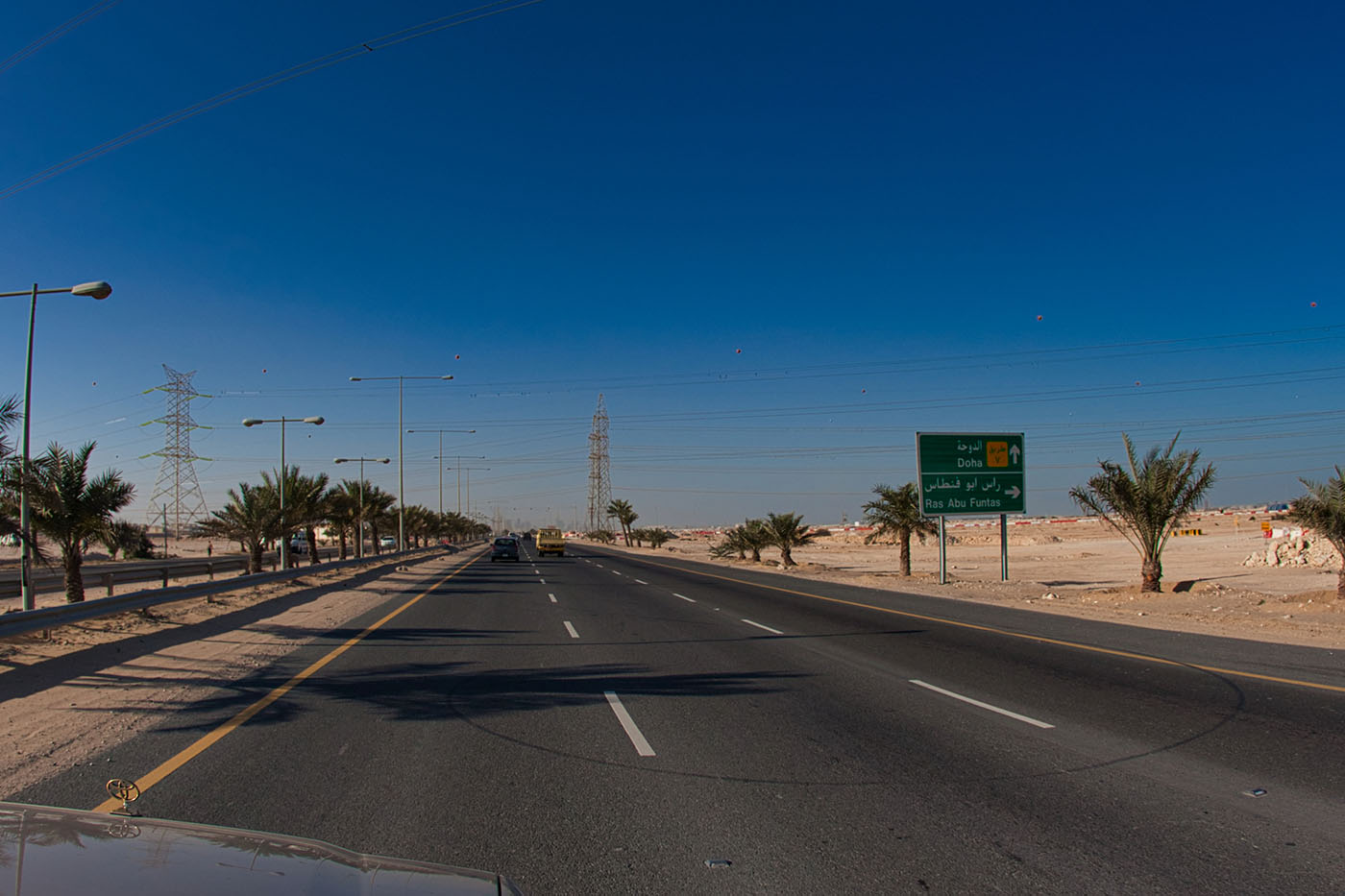Hany Ali Said
Translated by Ibrahim Fawzy
At blazing noon, the high temperature resembled a flame that escaped from hell and inhabited the earth. From afar, the man looked like a pile of stones by the roadside. His human features weren’t clear to me until the distance between us lessened.
I was driving home from work, a hundred or more kilometers away. His perfectly still, outstretched hand gave him the appearance of one of those highway scarecrows erected by contractors to warn drivers of roadwork repairs. I didn’t notice that the hand belonged to a man — not a scarecrow — until I passed him. I braked hard and reversed my car.
In his despair, the poor man had turned his face to oncoming traffic in the highway’s other lane. He paid me no heed until my car stopped beside him. I rolled down the window, and waved. “Get in.”
At first he didn’t understand. From his features I could tell he was one of the many South Asian laborers who worked in the Gulf, where I too was employed. More than once I regretted my inability to identify Adam’s many sons, and the nations’ wombs from which they came. Everyone I met recognized that I was Egyptian, though I never understood how they knew.
I called out again, “Get in, Sadeek.”
He reached for the car door with the desperateness of someone on his last legs, in the heat. Inside, the car’s air conditioner cooled his face. His hair, pitch black, fell over his forehead. His lips, scorched by the sun, were chapped. I handed him a bottle of water. He took it, gratefully. In seconds, he poured the water down his throat. I didn’t have another bottle to give him. He thanked me in an Arabic accent I had trouble understanding.
“Shukran, Mudeer. May Allah reward you.”
Between Sadeek and Mudeer, thousands of migrants had disappeared. Every one of us who worked in the Gulf was called either “Mudeer” or “Sadeek” — as though our names belonged to gods, who were worshipped instead of Allah. It had almost become forbidden to acknowledge or address us by our real names.
Every now and then while driving, I took a peek at him. With his eyes closed, his head was against the car headrest. From the sporadic Arabic, English, and sign language he used I guessed he was Bangladeshi. He had left his home and had come here for a job at a company. He had missed the car, which ferried laborers to work. He had been trying to get there to avoid punishment by his Mudeer. Instead he settled himself in the front seat, and fell asleep.
As we approached my apartment, I tried to wake him up.
“Sadeek! Sadeek!” My words startled him, and he sat bolt up right.
“Where do you get out?” I asked.
“Here … Here,” he nodded.
He left me with a stranger’s smile, and I knew I would never see him again. I went onto the market to buy some groceries, and then went home. In a desultory mood I trudged up the stairs of my building like a person worn down by life, yearning for anything but life itself. I let myself into the apartment. I went to a window, shut it, and turned up the air conditioner in a room that was suffocating. I glanced outside. My passenger, the stranger, was sitting on the red-hot pavement, his head between his knees, in an effort to escape the heat.
I went and prepared my dinner. I hadn’t eaten anything since the morning. Even though I was starving, my hands refused to feed me. There was nothing I could do, so I returned to the window, and inspected the pavement below, intent on finding my lost appetite. It was gone as was the man. Either the sun had swallowed him whole, or like burnt straw, a cinder caught on the wind, he had disappeared.
Without thinking, I quickly left my apartment. In the hallway I nearly jumped down the stairs. On the road outside, I looked everywhere but the man was nowhere to be seen. An immense sadness engulfed my heart. I went back to my building, literally dripping in sweat. I stopped momentarily in the deep shadows of the hallway entrance, and wiped the salty, teary drops of sweat from my face.
Once I had a chance to look around, I thought I saw a ghost. Someone was crouching in the corner, and then I knew. “Sadeek! Sadeek!” I shouted out, my voice jubilant.
Wearily, the man stood up. I gently took his hand in mine, and ushered him upstairs to my apartment. I told him, “I’m a stranger who searches for strangers like me. I look for faces, who remind me of people who were once mine, whom I’ve been torn away from. Perhaps it’s the same for you. The two of us will always recognize each other whenever we meet.”
His gentle smile told me he understood nothing of what was said.
He murmured the only words he knew I would understand. “Shukran, Mudeer. May God reward you.”
It was the expression of his face which spoke so eloquently to me.




